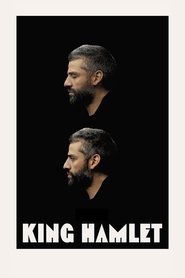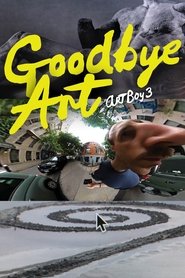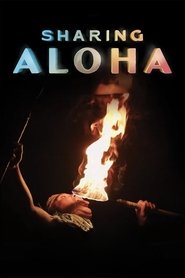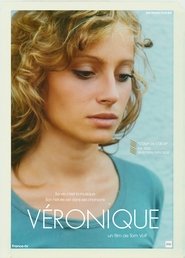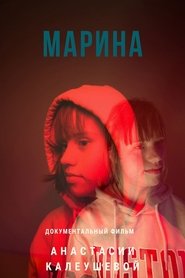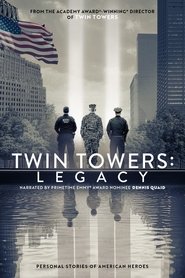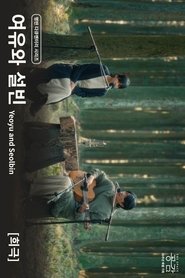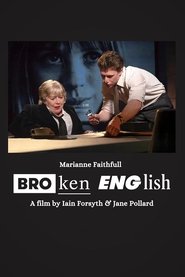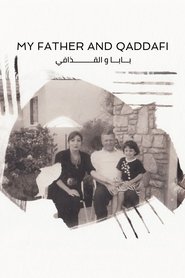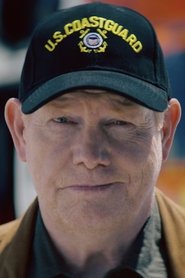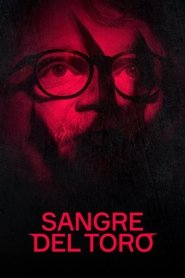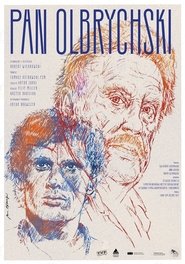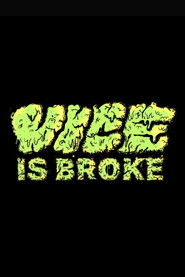New Documentary Movies on Tub Tv - Page 182
-
The Cycle of Love
2025
The Cycle of Love
2025
Explores the romantic journey of PK Mahanandia, a Delhi street artist who trekked 6,000 miles by bicycle in 1977, venturing across continents to reunite with the woman he loved. -
King Hamlet
2025
King Hamlet
2025
Actor Oscar Isaac takes on the iconic role of Shakespeare's Danish prince in an intimate look at his preparation and performance at NYC's Public Theater. -
Goodbye, Art
2025
Goodbye, Art
2025
Goodbye, Art attempts to get to the bottom of why contemporary art sucks by talking with artists and intellectuals and even to a man who suspects that the Earth might be flat. -
Sharing Aloha
2025
Sharing Aloha
2025
star 6A backstage exploration of what it means for young Islanders to preserve and pass on the culture of their ancestors, diving behind the scenes for a rare look into one of Hawaii's most popular (and least understood) tourist stops. -
Véronique
2025
Véronique
2025
Tom Volf invites you to delve into the fascinating world of Véronique Sanson, a living legend of French chanson. After several years of research and immersion, he is unveiling an intimate and sincere portrait of the artist in a film event. The fruit of his encounter with the singer, this project highlights the raw emotion and beauty of her career. -
Marina
2025
Marina
2025
To be independent, to get married, to be realized in a profession - quite simple and understandable desires for a girl. But if you have Down syndrome, it all becomes like an impassable quest. -
Twin Towers: Legacy
2025
Twin Towers: Legacy
2025
In this follow up to Robert Port's Twin Towers, follow the journeys of NYPD Detective Joe Vigiano's children in their call to service in an effort to honor their father’s memory, first in the Marine Cops and then as sworn officers in the NYPD. -
Yeoyu and Seolbin - [Comedy]
2025
The folk duo 'Yeoyu and Seolbin' completed their third album, 「Comedy」, while living in Jeju. The record swept the Folk category at the Korean Music Awards and was praised as "a single album that has it all—regret and sympathy, rage and sorrow, and hope." Exploring what it means to be alive in the face of life's tragedies, the duo weaves a subtle yet powerful narrative through Jeju's landscapes: an old house and its yard, a Chinese restaurant where they once worked, and the recording studio. -
Han Kang Chronicles: A Tale of Seven Lives
2025
star 10Author Han Kang mourns everything that fades and perishes in the world, including her sister, who died just two hours after birth. Her mourning transcends writing; she composes music, sings, and even holds rituals for the dead at times. This documentary spotlights Han Kang as a unique artist who communicates with the world through diverse forms like art, music, and documentary. "Han Kang Chronicles: A Tale of Seven Lives" sensuously captures her literary world through dance and theater. -
The Nun – 25 years in a convent
2025
Marta comes from a deeply devout Catholic family, they are nine siblings. After high school, she entered the strictest of all monastic orders, the Carmelite Order. Marta lives according to monastic rules that were instituted in the Middle Ages, she lives a life of prayer and silence, and never leaves the monastery. Seven times a year, she receives visits from her family; they meet in a visiting room separated by bars. Today, Marta is 45 years old and has lived her entire adult life in the convent. The siblings have chosen different paths in life, they live in very different places in the world. The film follows a family across three generations, who have all chosen to live with God at the center. A film about faith and existential questions. -
Madrid, Ext.
2025
Madrid, Ext.
2025
star 10A film essay about the city and the passage of time, its transformations and contradictions. It is a tribute to Madrid as a great visual and sound archive of its inhabitants and locations where commerce and fauna, architecture and ladies, haberdasheries and poets, builders and destroyers of the city intersect. -
Broken English
2025
Broken English
2025
star 8A survivor, provocateur and true original, Marianne has spent more than six decades defying expectations — releasing over thirty-five albums while constantly reinventing herself. Made with her full involvement, Broken English is an intimate and unflinching exploration of a fractured yet unbreakable life shaped by fame, creativity and relentless public scrutiny. -
My Father and Qaddafi
2025
When Jihan was six years old, her father flew to Cairo and never returned. Mansur Rashid Kikhia was the Foreign Minister of Libya, ambassador to the United Nations, and a human rights lawyer. After serving in Qaddafi's increasingly brutal regime, he defected from the government and became a peaceful opposition leader. Kikhia was obsessively loyal to his country but ultimately, his determination to reason with Qaddafi led to his disappearance from a hotel in Egypt in 1993. -
PARATUS A 20th Anniversary Special
2025
A look back 20 years ago, on the challenges Coast Guard air crews and rescue swimmers had to overcome in New Orleans, to successfully rescue thousands of people in need following Hurricane Katrina in 2005. -
Mut
2025
Mut
2025
Mut (mountain in Bergamasque dialect) is a day in the mountain pastures, an allegory of a summer season in the mountain pastures that has been repeated for hundreds of years. Through the eyes of two young farmers and their parents, the cyclical nature of life in the mountains becomes a universal portrait of working with animals and a family relationship made up of gestures, silences, and affection immersed in nature. -
Sangre del Toro
2025
Sangre del Toro
2025
star 4.8Director Guillermo del Toro journeys through a labyrinth of childhood memories, cultural myths and monsters to reveal the origins of his visionary films. -
The New Yorker at 100
2025
star 6.9Hard-hitting journalism. Era-defining fiction. Witty cartoons. The New Yorker marks its 100th anniversary with this look at its past, present and future. The New Yorker's centennial reveals behind-the-scenes access to editors, writers, and archives of this culturally vital magazine, one of print's last survivors. -
Pan Olbrychski
2025
Pan Olbrychski
2025
Biographical documentary film presenting the silhouette and artistic path of the outstanding actor Daniel Olbrychski. The narrative of the main character is confronted with his colleagues and friends, in contemporary interviews, including: with Krystyna Janda, Jerzy Hoffman, Krzysztof Zanussi, Volker Schlondorff and Adam Michnik. The archival materials will include statements and excerpts from the realization of scenes from Andrzej Wajda's films. The film roles of the main character are intertwined with his private life. -
Vice Is Broke
2025
Vice Is Broke
2025
star 6An investigation into the once high-flying digital news outlet that filed for Chapter 11 bankruptcy in 2023 after boasting a valuation of $5.7 billion in 2017.
 Netflix
Netflix
 Amazon Prime Video
Amazon Prime Video
 Apple iTunes
Apple iTunes
 Apple TV Plus
Apple TV Plus
 Disney Plus
Disney Plus
 Google Play Movies
Google Play Movies
 Paramount Plus
Paramount Plus
 Hulu
Hulu
 HBO Max
HBO Max
 YouTube
YouTube
 fuboTV
fuboTV
 Peacock
Peacock
 Peacock Premium
Peacock Premium
 Amazon Video
Amazon Video
 The Roku Channel
The Roku Channel
 AMC+
AMC+
 Kocowa
Kocowa
 Hoopla
Hoopla
 The CW
The CW
 Vudu
Vudu
 Starz
Starz
 Showtime
Showtime
 PBS
PBS
 Pantaflix
Pantaflix
 FXNow
FXNow
 Tubi TV
Tubi TV
 Kanopy
Kanopy
 Comedy Central
Comedy Central
 Crunchyroll
Crunchyroll
 Microsoft Store
Microsoft Store
 Redbox
Redbox
 Sun Nxt
Sun Nxt
 ABC
ABC
 DIRECTV
DIRECTV
 Crackle
Crackle
 Fandor
Fandor
 Plex
Plex

